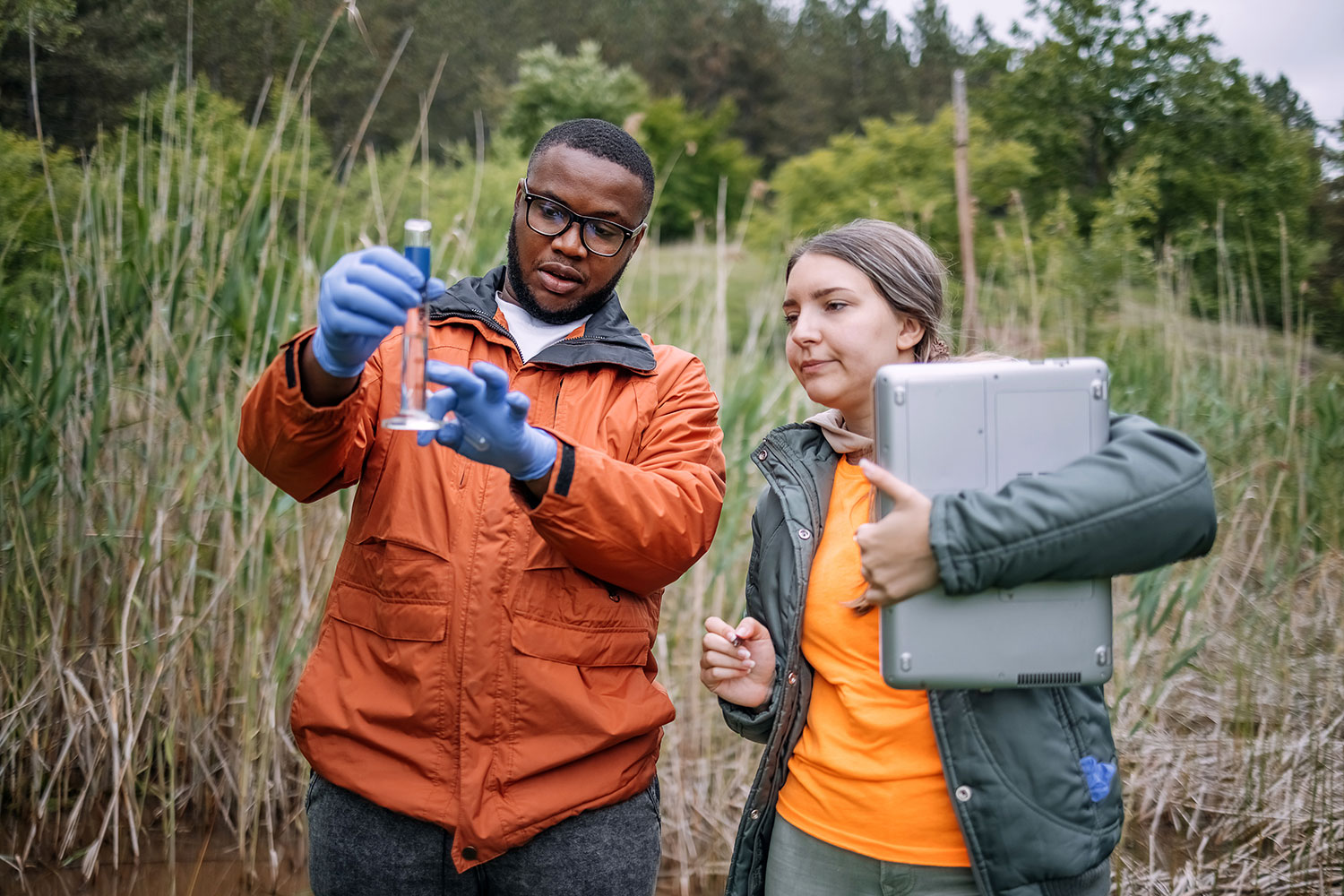Program of Population Sciences and Cancer Control

Program Lead:
Edward Trapido (etrapi@lsuhsc.edu)
Program Co Lead:
Lang Wu (lwu3@lushsc.edu)
The LSU LCMC Health Cancer Center Program of Population Sciences and Cancer Control is grounded in understanding variations in cancer rates among populations and addressing the complex factors that drive these differences across Louisiana. Our cancer research spans the intersection of genetics, the environment, and societal determinants of health, with a growing emphasis on the role of severe weather events in cancer outcomes.
Through robust research, innovative data methods, and community-engaged programs, we aim to reduce cancer incidence, enhance early detection, improve survivorship, and elevate the quality of life for all populations.
By advancing public health approaches, we strive to uncover and address the root causes of cancer distinction and bring lasting change to the communities we serve.
Population Sciences and Cancer Control Research in Practice
Our work in cancer epidemiology, prevention, and control is driven by a focus on eliminating variations in cancer rates, advancing access to healthcare for all, and using behavioral interventions to reduce cancer risk and improve outcomes.
We approach understanding cancer risk and outcomes through the lens of real-world exposures and lived experiences by investigating the role of:
- Environmental factors, such as air, soil, and water quality
- Community and societal influences
- Lifestyle factors, such as tobacco and alcohol use
- Markers of exposure and early indicators of disease
Early intervention is a key part of our work as we aim to develop and apply strategies that can detect disease sooner, reduce risk, and improve long-term health outcomes. By connecting science with the social and environmental realities of the communities we serve, we can close the gap in cancer burden for everyone.
Reducing the burden of cancer requires more than clinical interventions — it requires trust, collaboration, and a deep understanding of the communities we serve, recognizing that health is shaped as much by environment, healthcare access, and lived experience as it is by biology.
We work closely with local, regional, and national partners to address the root causes of variations in cancer rates and connect with a range of population groups. Through these partnerships, we extend the reach and relevance of our work:
- Louisiana Cancer Prevention and Control Programs
- Louisiana Breast and Cervical Cancer Program
- LSU LCMC Health Cancer Center Community Outreach and Engagement
- LSUHSC Center for Evidence to Practice
- Tobacco Free Louisiana
- Louisiana Tobacco Control Initiative
- Louisiana Department of Health and Office of Public Health
- Ochsner Health
- Louisiana Tumor Registry
- National Cancer Institute SEER
- National Program of Cancer Registries
Together, these efforts reflect our commitment to healthcare for all and our belief that lasting change comes from working not just in clinical settings, but in and with the community.
Research Spotlight
Our faculty are leading innovative, community-engaged studies that address health variations across populations. These projects show our commitment to advancing population health through science, collaboration, and advocacy.
Dr. Qingzhao Yu is leading efforts to understand why triple-negative breast cancer (TNBC) – an aggressive form of breast cancer – is more common and more deadly among African American women. By studying how social and environmental factors (such as neighborhood conditions and chronic stress) interact with tiny cancer-related molecules called exosomal miRNAs (ES-miRs), the team is working to uncover what drives these disparities. This research could lead to earlier detection, better treatment options, and, ultimately, more equitable outcomes for women facing TNBC.
Funded by the EPA through the LSU Foundation, Dr. Adrienne Katner and a multidisciplinary team, including Dr. Lucio Miele, Dr. Jovanny Zabaleta, Dr. Evrim Oral, and Dr. Stephania Cormier, are leading a community-engaged research initiative in partnership with the Claiborne Avenue Alliance Design Studio. Since 2016, the Claiborne Corridor Project has investigated the environmental and health impacts of the Claiborne Expressway, a highway built through a historic African American neighborhood. The team’s research has confirmed elevated levels of traffic-related pollutants and associated health issues in the corridor, such as higher rates of asthma and respiratory symptoms. The project has combined student-led research, community engagement, policy development, and advanced environmental monitoring and is now expanding to include biological sampling to assess early markers of disease.
Looking Ahead in Population Sciences & Cancer Control
As we focus on impactful research and community engagement, we are committed to growing a culture that is collaborative and driven by our members' strengths.
Looking ahead, we will develop a member-driven strategy that aligns with emerging opportunities and fosters innovation across disciplines. Key initiatives include the creation of grant-based working groups and strategic faculty recruitment.
We will focus on supporting preliminary data collection and new cancer initiatives, with clear metrics for success, including:
- Increased funding
- High-impact cancer publications
- Meaningful collaborations
- Measurable clinical and community outcomes
By investing in people, partnerships, and data, we are laying the groundwork for transformative advancements in population health and disparities research.
